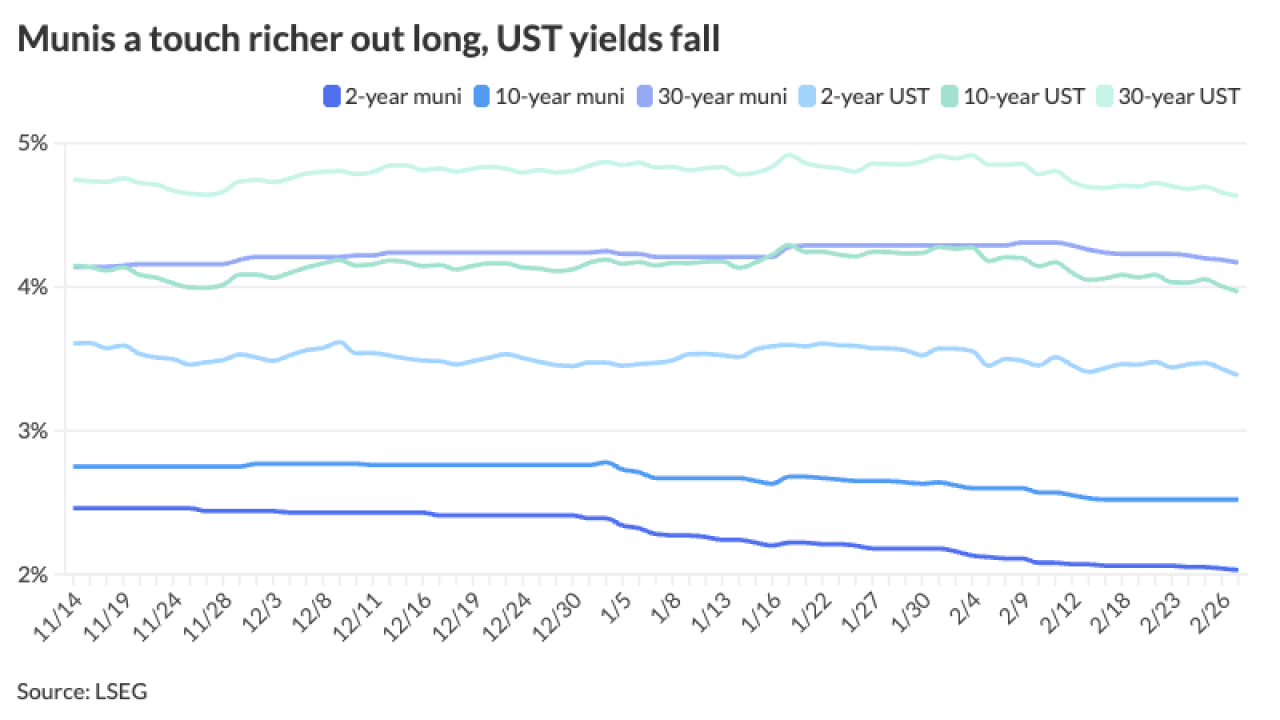WASHINGTON – Bank of Oklahoma Financial is arguing that a class action suit alleging it failed as a trustee for bonds tied to fraud allegedly committed by Christopher Brogdon and Dwayne Edwards is baseless and should be dismissed.
BOKF filed its motion to dismiss the case in the U.S. District Court for the Northern District of Oklahoma. The bank, through its lawyers, said in the motion that the ten plaintiffs did not state a cause of action in their complaint and instead relied “on baseless innuendo about the behavior of one of BOKF’s rogue employees occurring in a totally different context at a different point in time.”

"BOKF honored its duties and obligations under the trust indentures," the bank wrote, adding, it, "gave timely notice to all bondholders of critical events and timely commenced six civil actions against Edwards [and others] on behalf of the bondholders."
Much of BOKF’s response centered on the argument that the bank was only bound by its trust indentures for the six municipal bond issues on which it served as trustee and that the plaintiffs did not identify specific violations. The bank said that the class action complaint ignored the trust indentures that exclusively governed BOKF’s duties, the notices BOKF gave to bondholders, and the actions BOKF took in a timely way to protect the bondholders’ interests.
The class action group, which may include in excess of 1,000 bondholders across the U.S., is seeking a jury trial and compensatory damages of more than $5 million. They say BOKF, while acting as trustee for certain offerings, kept material facts from investors like draws on debt service reserve funds, failures to replenish those funds, and commingled bond revenues pledged to specific facilities.
The case is related to several Securities and Exchange Commission actions, one of which involved Christopher Brogdon, the Atlanta-based businessman the SEC charged with committing fraud in financings for at least 43 nursing homes and other entities he owned or controlled. The commission said he falsely claimed in bond offering documents that investors would receive interest from revenues generated by the projects in which they thought they were investing. Instead, Brogdon commingled investor funds and used the money for personal expenses and business ventures.
A federal judge in New Jersey, in a January 2016 order, required Brogdon to create a plan to pay $85 million to the harmed investors.
Another related SEC case, which is still in progress, alleges that businessman Dwayne Edwards purchased a number of Brogdon’s facilities and engaged in similar conduct to Brogdon after frequently meeting with him and using many of the same deal participants, including BOKF, that Brogdon used in his fraudulent financings. The SEC alleges that Edwards improperly commingled funds from nine different conduit municipal bond offerings totaling nearly $62 million as well as revenues from the facilities financed by the offerings. The bond proceeds were supposed to be used to finance assisted living and memory care facilities in Georgia and Alabama.
While each of the named plaintiffs in the class action only have investments in Edwards-related bonds, their lawyer said that other members of the larger group aside from the ten named have investments in Brogdon’s offerings.
BOKF agreed to pay $1.6 million in September 2016 to settle SEC charges that it helped to conceal numerous problems and red flags from holders of the various conduit bonds while it was acting as trustee.
Marrien Neilson, a former BOKF employee who the SEC said acted outside BOKF's protocols and was responsible for concealing Christopher Brogdon's securities fraud, also agreed to a ban from acting as an indenture trustee or dissemination agent for municipal bonds in the future as well as to pay $55,000 to settle the charges in a related case to the BOKF settlement.
The lawyer for the class action group wrote in the complaint that BOKF failed to notify existing or prospective investors of various violations, material misrepresentations, and omissions that it was aware Edwards was committing. BOKF, as trustee, had, among other things, a duty of care, a duty to preserve the assets of the bonds in the trust, and a duty to disclose all material facts that it knew might affect bondholders’ rights, he wrote.
BOKF disputes that in its recent motion, pointing to portions of the trust indentures that explicitly say the trustee is not responsible for any information, statement, or recital in any official statement, offering memoranda or other disclosure material prepared or distributed with respect to the bonds. It also says the indentures explain BOKF’s role is limited.
The bank also said the complaint does not include “a single citation to an actual breach of the trust indentures” and added that it cannot be held liable for wrongs that are based on duties that it was not explicitly given in the indentures. There are also numerous failures to identify specific times, places, and parties involved in the plaintiff’s allegations, which should lead the judge to conclude dismissing the case is the correct course to take, BOKF wrote.





